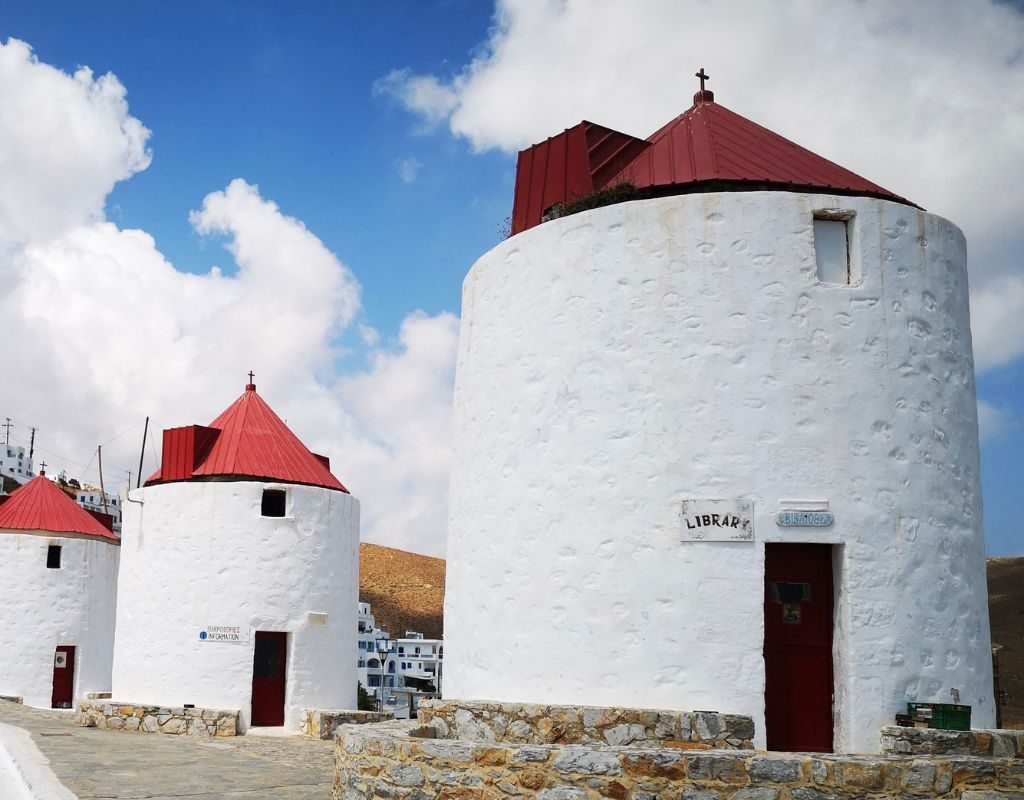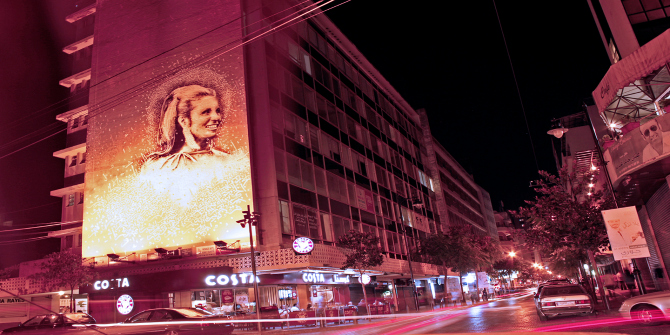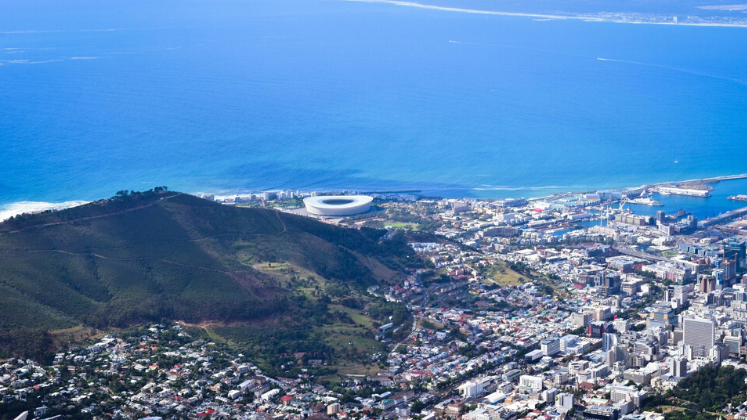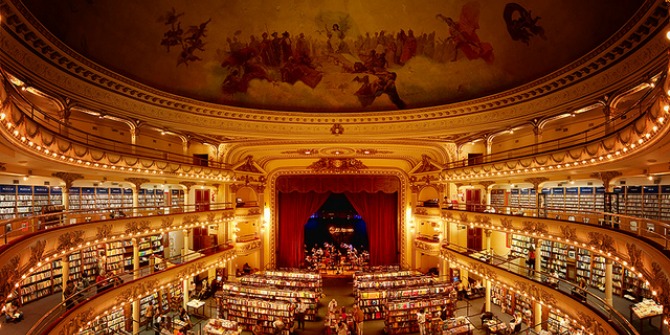In this bookshop guide, Angeliki Tzampazi takes us to three of the Dodecanese Islands in Greece, Rhodes, Pátmos and Astypalea, and highlights some of their best independent bookshops. If you have bookshops you’d like to recommend in a particular city, further information about contributing follows this article.
Makris Bookshop, Rhodes
In classical history, Rhodes was a maritime power and the site of the Colossus of Rhodes, which was dedicated to the sun god Helios. The island was famous as a centre of painting and sculpture and had a noted school of eclectic oratory at which Julius Caesar was a student. The Crusader Knights of Rhodes (Knights of Malta) acquired Rhodes in the 13th century and built the ‘Old City’, which was designated a UNESCO World Heritage site in 1988. Ottoman Turks came to power in the early 16th century, influencing the island with Islamic religious architecture. In 1912 Rhodes was taken from Turkey by Italy, who were eager to build the ‘New City’. The Germans occupied the island from 1943 to 1945. Under the Allied peace treaty with Italy in 1947, the island was awarded to Greece.
If you’re visiting Rhodes, Makris (located at Geor. Mavrou 5, Rodos, no social media) is a unique bookshop, though it is well-known among Rhodians. The shop has no social media or website, but word of mouth is enough to make it a popular and beloved destination. Since 1957, the source of its success and committed customers has been the importance the owners place on interpersonal relations and the its intergenerational continuity; it is now it is run by the godson of the founder, Georgios Makris. Visitors can find little gems in the bookshelves and rare editions of books, and a few of the books are old enough that you can still see the pricing in Greek drachma (the currency Greece had before swapping to the euro in 2001); but don’t worry, you’ll pay in euros. During the final two years of high school (which are preparatory for national exams to enter university), my dad used to shop every Saturday at the local farmers’ market, and I would visit Makris, exploring and discovering new fiction and poetry. We still repeat this ritual when I’m at home: a comforting reminder that some things remain unchanged.
Windmill Library, Astypalea
According to Greek mythology, Astypalea and Europe were the daughters of Finikos and Perimidis. A mosaic from the 1st to 2nd centuries CE at the Archaeological Museum of Gaziantep, symbolises the union of Poseidon, god of the sea, with Astypalea. During the Hellenistic period (323 to 31 BCE), Astypalea was an important naval base of Ptolemy of Egypt and remained as such until the Roman period. The castle of Saint John, one of the most famous attractions, was built during the Byzantine years. The Venetians occupied the island from 1207 to 1269 and later on the sovereignty of Astypalea passed on to the noble Querini family of Venice, who had a great influence on the island.

Astypalea’s Windmill lending library (located at Epar.Od. Livadia-Vathis, no social media) is a must-see for any book-loving visitor to the island. The collection is made up of foreign-language books donated by public institutions, tourists and other visitors, residents and students. The library is run by by volunteers including Stella, a wonderful lady who teaches in both Astypalea’s college and high school. She is the main custodian of the lending library and volunteers much of her time assisting visitors with books. If you happen to visit Astypalea, don’t miss this the opportunity to visit Windmill!
Koukoumavla, Pátmos
Compared to neighbouring islands, Pátmos received scant mention by ancient writers. Under the Romans it was a place for exiles, the most noted of whom was Saint John the Apostle, author of the Fourth Gospel and the Book of Revelation, who, according to tradition was sent there about 95 CE. Most of the island’s inhabitants live in the elevated town of Khóra (Pátmos) in the south and in the harbour village of Skála in the island’s centre. The monastery, cave, and town of Khóra were designated a UNESCO World Heritage site in 1999.

Koukoumavla Artshop+Books, located in Khóra, is an alternative bookstore and art shop in the island of Pátmos. Its colourful bookshelves, green walls, black-and-white flooring and handmade decorations make you feel that you have stepped into Alice in Wonderland. Instead, you are entering the world of owner Despina, who has evidently put so much love and creativity into the space and makes everyone feel welcomed. Visitors can find little treasures such as second-hand and new books. It’s a bookstore that kids as well as adults can enjoy – we all deserve to let the imagination of our inner child free, and Koukoumavla can certainly assist in that!
Note: This bookshop guide gives the views of the author, and not the position of the LSE Review of Books blog, or of the London School of Economics and Political Science.
Banner Image Credit:George Papapostolou on Shutterstock
Text Image Credit: Angeliki Tzampazi
Do you know a place with great bookshops? If there’s a city or town with bookshops that you think other students and academics should visit, then this is your chance to tell us all about it.
As part of a regular feature on LSE Review of Books, we’re asking academics and students to recommend their favourite three or four bookshops in a particular city, with the aim of building an exciting online series for our book-loving community of readers the world over.
Bookshops could be academic, alternative, multilingual, hobby-based, secret or underground institutions, second-hand outlets or connected to a university. We’d like to cover all world regions too and are particularly keen to feature cities outside of Europe and North America.
If something comes to mind, we’re looking for a brief introduction about the city and around 150 words per bookshop, detailing why each one is a must-see. Our editorial team can then find suitable photos and links to accompany the piece, though you’re welcome to supply these too. We only ask that you focus on just one city or region, and three or four bookshops within it.
Email us if you’d like to contribute: lsereviewofbooks@lse.ac.uk








